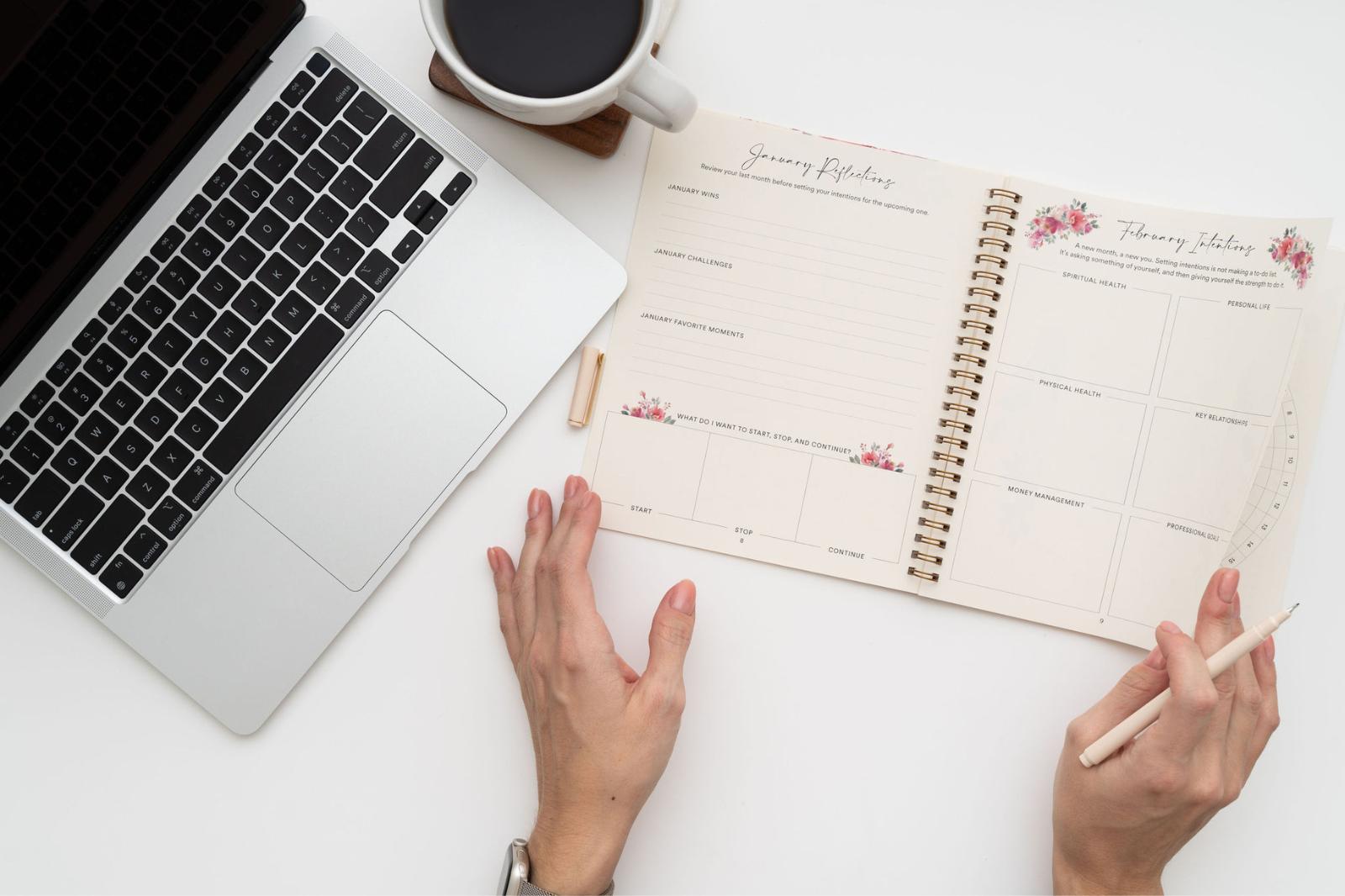Home>Ideas and Tips>How To Start Journaling For Personal Growth


Ideas and Tips
How To Start Journaling For Personal Growth
Published: November 4, 2024
Discover the benefits of journaling for personal growth and learn how to start with practical tips and techniques for a transformative practice.
(Many of the links in this article redirect to a specific reviewed product. Your purchase of these products through affiliate links helps to generate commission for Storables.com, at no extra cost. Learn more)
Journaling is a powerful tool for personal growth, offering numerous benefits that can enhance your emotional well-being, self-awareness, and overall quality of life. Whether you're looking to improve your mental health, clarify your goals, or simply gain a deeper understanding of yourself, journaling can be an incredibly effective practice. In this article, we'll explore the benefits of journaling, provide tips on how to get started, and discuss various techniques to help you make the most out of this transformative practice.
The Benefits of Journaling
Journaling is more than just writing down your thoughts; it's a holistic practice that can positively impact multiple aspects of your life. Here are some of the surprising benefits you can experience through regular journaling:
Read more: How To Start A Gratitude Journal Routine
Enhanced Self-Awareness
One of the primary advantages of journaling is its ability to foster improved self-awareness. This process involves understanding the depths of your thoughts, emotions, behaviors, and patterns. By consistently recording your experiences and emotional responses, you can begin to identify unproductive patterns that are hindering your personal growth and self-development. This awareness is crucial as it enables you to address these patterns and make conscious changes to foster positive development and a more fulfilling life.
Understanding Emotional Triggers
Writing about your experiences and feelings can help pinpoint specific situations or people that trigger certain emotional responses. This insight is essential in mastering emotional regulation and establishing more adaptive coping strategies. By recognizing these triggers, you can develop strategies to manage them effectively, leading to better emotional stability and resilience.
Clarifying Values and Beliefs
Your journal can serve as a canvas to explore and define your core values and beliefs. These insights then serve as a north star, directing your actions and choices to be in harmony with your authentic self. Clarifying your values helps you make decisions that align with what truly matters to you, leading to greater satisfaction and purpose in life.
Setting Clear Objectives and Goals
Setting clear, attainable goals is a cornerstone of personal growth. Journaling provides a dedicated space to articulate, refine, and reflect upon your personal and professional objectives, ultimately bringing them into sharper focus. By recording your goals, you make them more tangible and concrete, providing a clear direction for your journey ahead. Additionally, breaking down larger objectives into smaller, more manageable steps makes them less daunting and more achievable. Identifying potential obstacles in advance allows you to proactively devise strategies to overcome them, ensuring steady progress toward your goals.
Physical Health Benefits
Research suggests that journaling also comes with some pretty incredible benefits in other areas of our lives, including our physical health. The act of writing can help reduce stress levels, which is linked to various physical health issues such as hypertension and cardiovascular disease. Regular journaling practice has been shown to improve sleep quality, boost the immune system, and even lower blood pressure.
Improved Relationships
Journaling can also enhance your relationships by providing a deeper understanding of yourself and others. By reflecting on interactions with family and friends, you can identify patterns of communication that may be causing conflicts or misunderstandings. This self-awareness allows you to approach relationships with greater empathy and understanding, leading to more harmonious and fulfilling connections.
How to Start Journaling for Personal Growth
Now that you understand the incredible potential of journaling for personal development, let's talk about how to get started.
Choose Your Medium
The first step in starting a journaling practice is selecting your preferred medium. You can opt for the traditional pen and paper, which some people enjoy for the tactile experience. Alternatively, if you’re seeking a more modern, guided approach, consider using digital journaling apps like Rosebud. These apps provide a rich array of curated journaling prompts that guide users through a structured and introspective writing process.
Read more: How To Organize A Bullet Journal
Set a Routine
Consistency is key when it comes to journaling. Set aside a specific time each day dedicated to writing. You can start with as little as 5 minutes daily and work up to 20 minutes. Keeping a daily journal will help you build the habit and ensure journaling becomes an integral part of your personal growth journey. It’s essential to find a routine that works for you so that journaling becomes a sustainable part of your daily routine.
Experiment with Different Types of Journaling
There are various types of journaling techniques that can invigorate your practice. Here are a few examples:
-
Morning Pages: This technique involves writing down your thoughts first thing in the morning without stopping or editing. It helps clear your mind and sets a positive tone for the day.
-
Gratitude Journaling: Focusing on what you're grateful for each day can shift your perspective and increase overall happiness. Write down three things you're thankful for each day.
-
Prompt-Based Journaling: Using guided prompts can help you explore specific topics or themes. These prompts can range from simple questions like "What did I learn today?" to more in-depth reflections like "What are my long-term goals?".
Embrace Authenticity in Your Journaling Journey
Remember, a journal entry is a personal space for self-reflection and growth. Sugarcoating experiences or feelings will only hinder your progress. Take a candid look at your actions, acknowledging both your successes and areas for improvement. Holding yourself accountable is not an admission of failure but a valuable step toward personal development.
Tips for Establishing a Journaling Habit
While starting a journaling practice is exciting, maintaining it can be challenging. Here are some tips to help you establish and sustain your journaling habit:
Read more: How To Store Journals
Make It Convenient
Keep your journal in an easily accessible place so that you can jot down thoughts whenever they arise. Whether it's on your nightstand, in your bag, or on your desk at work, having your journal nearby ensures that you can write whenever inspiration strikes.
Be Consistent
As mentioned earlier, consistency is crucial when it comes to journaling. Try to write at the same time each day so that it becomes a habit. Even if you miss a day or two, don't get discouraged—just get back on track as soon as possible.
Use Prompts When Needed
If you're struggling with ideas or feeling stuck, use journaling prompts as a guide. These can be found online or in various journaling books. Prompts help structure your thoughts and keep you engaged with the process.
Review Old Entries
Regularly reviewing old entries can provide valuable insights into your growth over time. Reflecting on past experiences helps you see patterns and progress, which can be incredibly motivating.
Read more: How To Organize A Journal
Overcoming Obstacles to Journaling
While journaling offers numerous benefits, there are common obstacles that might prevent you from starting or maintaining this practice:
Lack of Time
One of the most common excuses for not starting a journaling practice is lack of time. However, even just 5 minutes a day can be beneficial. Try incorporating journaling into your daily routine, such as right after waking up or before bed.
Fear of Writing
Some people may feel intimidated by the idea of writing down their thoughts and feelings. Remember that journaling is for your eyes only; there's no need to worry about grammar, spelling, or coherence. The goal is self-reflection and personal growth, not literary perfection.
Difficulty in Getting Started
If you're new to journaling, it might be challenging to know where to begin. Start with simple prompts like "What did I do today?" or "How did I feel today?" Gradually move on to more in-depth reflections as you become more comfortable with the practice.
Read more: How To Slow Grass Growth
Conclusion
Journaling is a powerful tool for personal growth that offers numerous benefits ranging from enhanced self-awareness and emotional regulation to improved physical health and relationships. By choosing the right medium, setting a consistent routine, experimenting with different types of journaling techniques, embracing authenticity in your practice, and overcoming common obstacles like lack of time or fear of writing, you can establish a sustainable journaling habit that transforms your life in profound ways.
In conclusion:
- Start Small: Begin with short sessions each day and gradually increase the duration as you become more comfortable with the practice.
- Be Patient: Journaling is a journey; it takes time to see significant changes in your life.
- Stay Consistent: Make journaling an integral part of your daily routine.
- Experiment: Try different techniques until you find what works best for you.
By following these tips and embracing the transformative power of journaling, you'll be well on your way toward achieving greater clarity, deeper self-awareness, and a more fulfilling life.
Was this page helpful?
At Storables.com, we guarantee accurate and reliable information. Our content, validated by Expert Board Contributors, is crafted following stringent Editorial Policies. We're committed to providing you with well-researched, expert-backed insights for all your informational needs.











0 thoughts on “How To Start Journaling For Personal Growth”